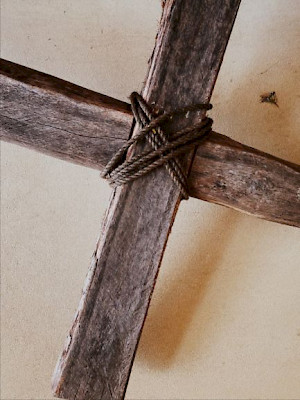Holy Week

“On the night he was betrayed.” Familiar words from most communion services. At the heart of Holy Week, the greatest week of the Church’s life, stands betrayal.
Our focus rests on Judas, the archetypal “kissing traitor”, as Shakespeare has it in Love’s Labour Lost. The Apostle who sells the Son of God for thirty pieces of silver only to realise too late his mistake and take his own life.
But we know it is not just Judas who betrays during this week. On Maundy Thursday whilst he slinks out of the shadows and with a kiss condemns the one he has said he would follow, 11 other men slink into the shadows, away from the one who has just washed their feet and who they said they would die for. One of them will attempt to stay in the shadow denying the last three years of his life until the cock crows and his eyes meet Jesus’ one last time before the cross.
On Good Friday “Beside the cross-foot, / Alone, four women stood and did not move / All day,” as Edwin Muir puts it in his poem The Killing. It is up to the secret disciples Joseph of Arimathea and Nicodemus to come and take Jesus’ body.
On Holy Saturday the disciples are locked away, scared, bewildered, exhausted and devoid of hope.
On Easter Day it is again only the women who venture out, desperate to do something, to perform one last act of service for the man they had followed and believed in.
For me, Holy Saturday is a powerful day. Hope is dead. It is the one day of the year where not even the Eucharist is celebrated. The raw silence of emptiness and hopelessness reigns. It echoes so many of our experiences being LGBTQ+ in the Church. So often we are surrounded by either silence, or the loss of all hope as those who are supposed to care for us make pronouncements about us that even our enemies might stop short at.



